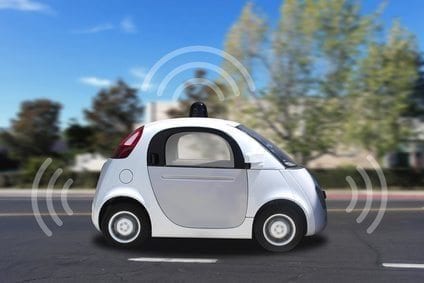One day, I expect that my grandchildren will ask me whether I ever drove a car myself, and if so, what the hell I was thinking in doing so. There seems little doubt that driverless cars are coming and that, theoretically at least, there will be fewer car accidents and fewer people killed and injured by such accidents. The potential advantages of living in a world of driverless cars are, in principle, clear. However, this does not mean that the age of the driverless car will be free from difficult issues and problems.
One important question raised by driverless cars is who, if anyone, will be responsible for the accidents which they will inevitably cause and the resulting injuries? Would the designer of the computer system be to blame? Or would responsibility rest with the manufacturer? Or, perhaps, with the company that sold the car concerned? These simple questions reveal that it is not at all straightforward where responsibility will lie. It is entirely possible that responsibility may rest with more than one person given that cars are often an amalgam of parts that are designed and produced by several different companies.
These questions rather assume that the existing rules regarding the allocation of responsibility will be applied without modification to the driverless car context. However, it is by no means clear that they will be. For example, parliament may well think that the current rules are ill-suited when it comes to driverless cars and decide that a fund should be established from which persons injured in accidents resulting from driverless cars can claim compensation regardless of who is to blame. But would putting in place such a fund be desirable? And who would pay for this fund? Would, for example, money be raised by way of a tax on the purchase or use of driverless cars?
There are also a host of more practical issues to consider. Are automated cars likely to be confined to our highways? Or can we also expect to see them in our cities? Furthermore, how will ownership of driverless cars tend to be held? Will they be owned by individuals, as most vehicles are today? Or will we instead contract for the use of such cars for the short-term or for single journeys, perhaps by way of a smartphone application. What will happen when one needs to transport luggage? And what will be the situation when one is travelling with infants? How will they be safely accommodated? It is important not to forget the equality issues that will arise, too. Will driverless cars be the province of the wealthy? Or to people who live in urban areas? Will they be available to those who may want to use them who live in rural parts of Australia?
The age of driverless cars is coming. It is important for lawyers and the legal system properly to prepare for it.
If you or somebody you care about has been involved in an accident, you may be entitled to compensation. For more information, and to arrange a free, no obligation assessment of your claim, please call Stacks Goudkamp on 1800 251 800, or alternatively make an online enquiry.
Written by Tom Goudkamp OAM
Tom Goudkamp is Managing Director of Stacks Goudkamp. He has over 40 years of experience of successfully bringing compensation claims for people injured in motor vehicle accidents.



